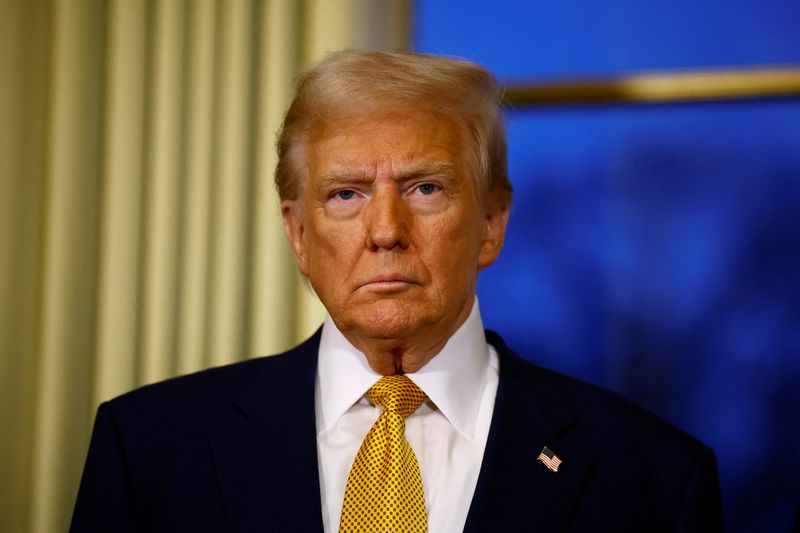U.S. President Donald Trump said he will impose a 25% tariff on all foreign-made cars and light trucks on April 2, as he gears up to widen his tariff agenda on key industries and trading partners.
Shares of major U.S.-listed automakers slumped after Trump’s comments, while Wall Street also retreated.
“What we’re going to be doing is a 25% tariff on all cars that are not made in the United States… business is coming back to the United States so that they don’t have to pay tariffs… This will continue to spur growth like you haven’t seen before,” Trump said during an event at the White House on Wednesday.
Trump expects automakers worldwide to flock to the U.S. to build their cars. He also expects U.S. automakers to shift production back onto U.S. soil from countries such as Mexico and Canada.
Earlier this week, Hyundai (OTC:HYMTF) announced a $21 billion investment in the U.S., including $5.8 billion for a new steel plant in Louisiana, creating nearly 1,500 jobs. Hyundai plans to increase its U.S. production capacity by about 200,000 vehicles.
The administration said the tariffs are expected to generate $100 billion in new tariff revenue for the country. But they are expected to be borne by local importers- a scenario that could ramp up local car prices, disrupt supply chains and factor into stickier inflation.
Trump said he would ask Congress to pass a bill to make interest payments for cars made in the U.S. tax deductible.
3rd party Ad. Not an offer or recommendation by Investing.com. See disclosure here or remove ads.
Wall St, auto stocks slide on tariff jitters
Shares of General Motors Company (NYSE:GM), Ford Motor (NYSE:F), and Stellantis NV (NYSE:STLA) fell between 3% and 8% in aftermarket trade. Tesla Inc (NASDAQ:TSLA) steadied after falling over 5%.
Foreign automakers like Toyota Motor (NYSE:TM), Honda Motor (NYSE:HMC), and Ferrari NV (NYSE:RACE) fell anywhere from 1% to 3%.
Losses in automobile stocks came amid a broader rout on Wall Street, as investors fretted over the impact of Trump’s tariff agenda. The U.S. President is set to announce sweeping reciprocal tariffs against at least 15 countries on April 2, a date he has repeatedly touted as “liberation day.”
Trump is also expected to impose tariffs on select commodity imports, and has threatened to impose tariffs on other key sectors such as semiconductors and pharmaceuticals.
But investors and policymakers- especially at the Federal Reserve- are growing increasingly concerned over the economic impact of Trump’s tariffs, especially in that they will crimp consumption and underpin inflation.
Ambar Warrick contributed to this report



